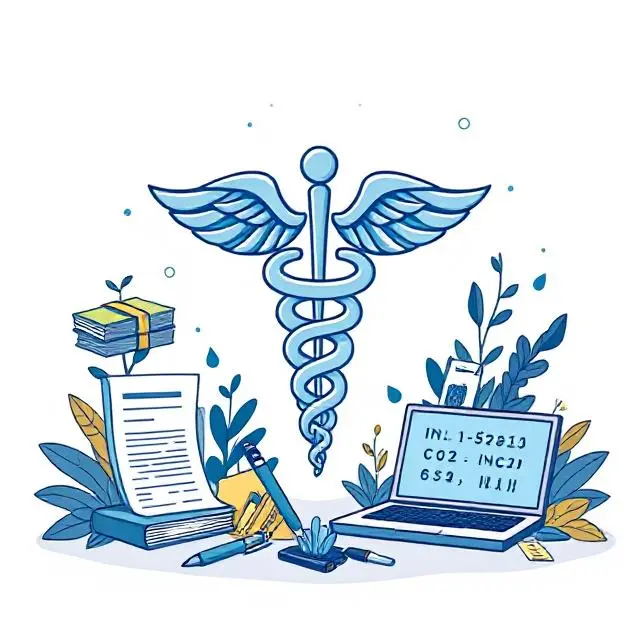The Health Insurance Portability and Accountability Act (HIPAA) is a cornerstone of the U.S. healthcare system, ensuring the privacy, security, and efficiency of patient data. Enacted in 1996, HIPAA has far-reaching implications for healthcare providers, payers, and patients alike. This article delves into the importance of HIPAA, the key processes involved in medical billing, the benefits of outsourcing, common challenges, compliance requirements, and how technology is revolutionizing the field.
The Importance of HIPAA in Healthcare
HIPAA was designed to modernize the flow of healthcare information, stipulate how Personally Identifiable Information (PII) maintained by the healthcare and healthcare insurance industries should be protected from fraud and theft, and address limitations on healthcare insurance coverage. The Act consists of two main parts:
- Title I: Protects health insurance coverage for workers and their families when they change or lose their jobs.
- Title II: Known as the Administrative Simplification (AS) provisions, it mandates the establishment of national standards for electronic healthcare transactions and national identifiers for providers, health insurance plans, and employers.
HIPAA’s Privacy Rule and Security Rule are particularly critical. The Privacy Rule establishes standards for the protection of individuals’ medical records and other personal health information, while the Security Rule sets standards for the security of electronic protected health information (ePHI).
Key Processes in Medical Billing
Medical billing is a complex process that involves several steps to ensure healthcare providers are reimbursed for their services. The key processes include:
- Patient Registration: Collecting patient demographics and insurance information.
- Insurance Verification: Confirming the patient’s insurance coverage and benefits.
- Coding: Translating healthcare services into standardized codes (CPT, ICD-10) for billing purposes.
- Charge Entry: Entering the coded services into the billing system.
- Claims Submission: Sending the claims to the insurance company.
- Payment Posting: Recording payments received from insurers and patients.
- Denial Management: Addressing and resolving denied or rejected claims.
- Patient Billing: Sending statements to patients for any remaining balances.
Benefits of Outsourcing Medical Billing
Outsourcing medical billing to specialized service providers offers numerous advantages:
- Expertise and Accuracy: Professional billing services employ certified coders and billing specialists who are well-versed in the latest coding standards and regulations, reducing errors and improving claim acceptance rates.
- Cost Efficiency: Outsourcing eliminates the need for in-house billing staff, reducing overhead costs associated with salaries, training, and software.
- Focus on Patient Care: By offloading administrative tasks, healthcare providers can concentrate on delivering quality patient care.
- Enhanced Revenue Cycle Management: Outsourcing firms use advanced technologies and analytics to optimize the revenue cycle, ensuring timely and accurate reimbursements.
- Scalability: Billing services can easily scale operations to accommodate fluctuations in patient volume, ensuring consistent performance.
Common Challenges in Medical Billing
Despite its importance, medical billing is fraught with challenges:
- Regulatory Compliance: Keeping up with ever-changing regulations, such as HIPAA, can be daunting.
- Claim Denials: High denial rates can significantly impact revenue. Common reasons include coding errors, lack of pre-authorization, and incomplete documentation.
- Patient Collections: Collecting payments from patients can be challenging, especially with high deductibles and co-pays.
- Technology Integration: Implementing and maintaining billing software that integrates seamlessly with electronic health records (EHR) systems can be complex.
Compliance with HIPAA Regulations
Compliance with HIPAA is non-negotiable. Key aspects include:
- Privacy Rule: Ensuring patient information is only disclosed with consent and for permissible purposes.
- Security Rule: Implementing administrative, physical, and technical safeguards to protect ePHI.
- Breach Notification Rule: Mandating timely notification of breaches involving unsecured PHI.
- Enforcement Rule: Establishing penalties for non-compliance, which can range from fines to criminal charges.
Technology’s Role in Improving Efficiency
Technology is transforming medical billing, making processes more efficient and accurate:
- Electronic Health Records (EHR): EHR systems streamline documentation and coding, reducing errors and improving claim accuracy.
- Automated Billing Software: Automates repetitive tasks, such as claim submission and payment posting, reducing manual effort and errors.
- Artificial Intelligence (AI): AI-powered tools can predict claim denials, optimize coding, and enhance revenue cycle management.
- Telemedicine Integration: As telemedicine grows, billing systems are adapting to handle virtual visits, ensuring accurate coding and reimbursement.
How Medical Billing Services Optimize Revenue Cycles
Medical billing services play a crucial role in optimizing revenue cycles:
- Reduced Denial Rates: By ensuring accurate coding and thorough documentation, billing services minimize claim denials.
- Faster Reimbursements: Efficient claim submission and follow-up processes result in quicker payments.
- Comprehensive Reporting: Detailed reports provide insights into financial performance, helping providers make informed decisions.
- Proactive Denial Management: Identifying and addressing potential issues before claims are submitted reduces the likelihood of denials.
Conclusion
HIPAA is fundamental to the integrity and efficiency of the healthcare system, safeguarding patient information and ensuring standardized processes. Medical billing, while complex, is essential for the financial health of healthcare providers.
Outsourcing medical billing offers numerous benefits, from cost savings to enhanced revenue cycle management. Despite challenges, compliance with HIPAA and leveraging advanced technologies can significantly improve efficiency and accuracy in medical billing.
By partnering with professional billing services, healthcare providers can focus on what they do best delivering exceptional patient care while ensuring their financial operations run smoothly.
